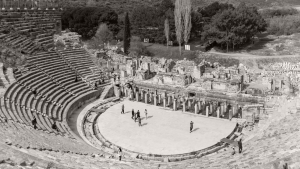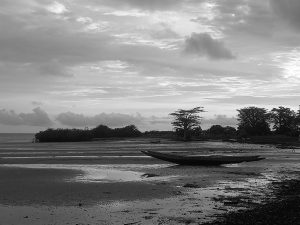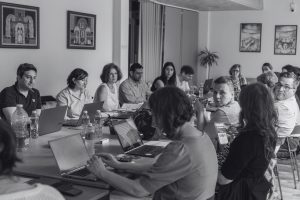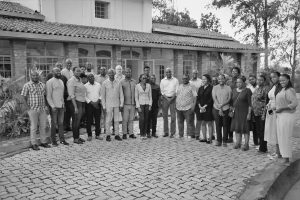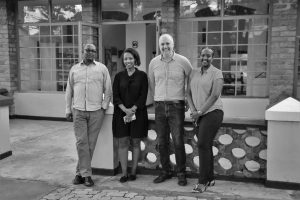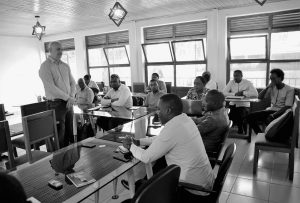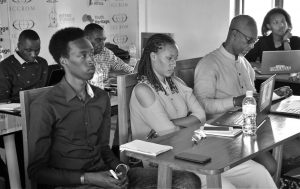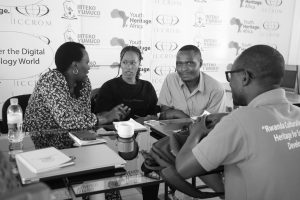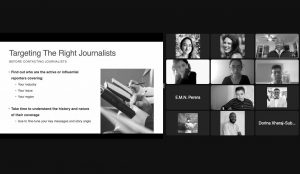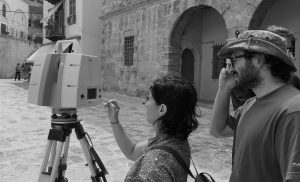: Uncategorized
Culture as a driver of sustainable development in Greece: a new report
HERITΛGE is pleased to announce the publication of an important report for the future of Greece’s cultural sector titled “Culture in Greece: How the culture sector can become an agent of sustainable development and a source of social value”, featuring a contribution by HERITΛGE Director Dr. Evangelos Kyriakidis.
The report was commissioned by DiaNEOsis, an Athens-based think tank that aims to contribute to public discourse on social and economic issues and promote change and meaningful political reform in the country.
It will be presented during the “Culture: Our Comparative Advantage” event organized to celebrate 70 years of the Friends of Music Society. The event will take place at Megaron, the Athens Music Hall, founded and managed by the society on Wednesday, October 18th.
The diaNEOsis report attempts a mapping of Greece’s cultural sector. It explores a number of themes, including the ways culture can contribute to the production of social and economic value and what Greece can do to strengthen its cultural and creative industries so that they can serve as a lever for sustainable development and regional revitalization.
The research aspires to open up a series of discussions and new research endeavors focused on the role of culture in today’s Greek society and economy. In this context, the writing team, headed by Christos Karras, a Cultural Strategy Consultant & Senior Consultant at the Onassis Foundation, focuses on eight areas and concludes with specific proposals that could form the basis for targeted, development-focused cultural policies.
The report’s authors also include: lawyer Gerasimos Yiannopoulos, Cultural Diplomacy researcher Olga Kolokytha from Universität für Weiterbildung Krems, researcher Antigoni Papageorgiou from Panteion University of Social and Political Science, journalist and museologist Dimitris Trikas, Onassis Foundation Digital Development and Innovation director Prodromos Tsiavos, and Benaki Museum curator and museum and cultural development advisor Sophia Chandaka.
Strengthening Partnerships: HERITΛGE visit The Gambia
An extended HERITΛGE team was in The Gambia in August to assess the progress of the Organization’s capacity development initiatives and explore how local communities are taking on board the heritage management training. HERITΛGE’s HerMaP Gambia program has delivered in the past three years, including HERITΛGE’s Training of Trainers (ToT) program that has been disseminating knowledge, and strengthening relationships with key stakeholders who play a vital role in cultural heritage management.
“Meeting with stakeholders underscored the effectiveness of our training programs in empowering trainers to pass on their knowledge to a broader audience in the Gambia,” says Mina Morou, HERITΛGE’s Africa Projects Manager. “To build on this success, we have scheduled another cycle of the “Train the Trainers” program for this autumn, aiming to continue expanding the reach of heritage management education in the region.”
During the visit, our team was happy to reconnect with a range of existing partners and new ones, who play pivotal roles in heritage management and preservation in The Gambia. These include the Institute of Travel and Tourism of The Gambia (ITTOG), the National Centre for Arts and Culture (NCAC), the National Assembly and the Gambia Tourist Board, EU Delegation, the Juffureh Albreda Youths Society (JAYS), My Gambia, National Environment Agency (NEA) and more.
HERITΛGE is also happy to announce that our new Gambian office in Banjul is now operational and will soon start hosting activities.
The program is co-funded by the European Union.
SHIFT Project forges ahead to make heritage accessible through technology
HERTΛGE attends SHIFT Consortium meeting: consulting stakeholders and reviewing use cases to make cultural heritage more accessible and inclusive through technology.
The SHIFT Consortium held its second in-person meeting earlier this month in Knjaževac, Serbia. HERITΛGE and twelve consortium partners were hosted on 15th – 16th June by the Homeland Museum of Knjaževac, part of the Balkan Museum Network.
¨We had a great opportunity to take stock of all the progress that has already been made for the creation of tools that will help make cultural heritage more accessible and inclusive,” said Razvan Purcarea, from project coordinating partner SIMAVI.
SHIFT is funded by the European Commission’s Horizon Europe program. It brings together 13 leading research and industrial organisations and SMEs with a common vision: to strengthen the impact of cultural heritage assets. SHIFT will produce an array of tools taking advantage of the latest developments in fields such as Artificial Intelligence (AI), Machine Learning (ML), Haptics, and Auditory Synthesizers to increase the appeal of historical artefacts, improving their accessibility and usability for everyone through better content representation, enriched user experiences, inclusive design, training, and more engaging business models.
During the Knjaževac consortium meeting, partners had the opportunity to review use-case scenarios and functional requirements, engage with external stakeholders, and attend the opening of the Homeland Museum’s latest exhibition.
HERITΛGE Community Engagement Workshop in Rwanda: Empowering Heritage Managers and Tourism Stakeholders
HERITΛGE is happy to announce the completion of its first in-person, 3-day training workshop in Rwanda, organised in partnership with the Rwanda Cultural Heritage Academy (RCHA) .
28 stakeholders took part in the Community Engagement for Heritage Management workshop on 29-31 May, led by HERITΛGE Director, Dr. Evangelos Kyriakidis. During the workshop, heritage managers and tourism stakeholders were given the tools and knowledge to enhance community involvement in preserving and promoting cultural heritage with a view to also enhancing sustainable tourism development.
“We would like to thank Dr Kyriakidis for sharing his incredible knowledge with us,” said Ambassador Robert Mazorera, RCHA’s Director General. “ It was an awakening course for us in relation to local community engagement in line with heritage management. ”
Dr. Kyriakidis noted that HERITΛGE’s first in-person workshop in the country is an important milestone for the organization. “It was great honour to visit Rwanda and to witness the very strong efforts being made across communities to preserve and strengthen local heritage,” Dr. Kyriakidis said. “HERITΛGE will continue to provide training and support heritage managers in working with RCHA to transform Rwanda’s heritage assets into dynamic sources of learning, community identity and sustainable economic development.
The workshop is part of HERITΛGE’s HerMap – Africa Program which has received funding from the Mellon Foundation’s Humanities in Place program.
Α workshop on “Communication Strategy and Strategic Marketing for Cultural Organizations”
The online 3-day workshop on “Communication Strategy and Strategic Marketing for Cultural Organizations” has come to an end, with 11 Heritage Managers from various countries gaining valuable insights on how to effectively communicate and manage communication around a crisis or issue. The workshop was held from 10 to 12 March 2023 and was attended by participants from Africa, Asia, and Europe.
The participants were trained by workshop instructor Derwin Johnson, an independent senior communication consultant with over 30 years of experience as a journalist, communication executive, and educator. Johnson is currently senior counsel to APCO Worldwide and PharmApprove, advising clients on how to develop media content and drive local, national, and international media relations campaigns.
The workshop equipped the participants with the necessary tools and techniques to communicate effectively through traditional, new, and social media. They gained insights on how to anticipate media conduct and provide strategic and tactical guidance to improve their communication efforts.
Participants engaged in various group activities that allowed them to play the role of an organization involved in a real, evolving initiative with multiple reputational implications. This included creating communications content for all social media and websites, writing blogs, and conducting interviews to better communicate their organization’s projects. Participants also learned how to communicate effectively in the event of a crisis situation through a crisis simulation exercise. Johnson’s expertise and guidance were instrumental in helping the participants develop their communication skills and abilities.
The workshop concluded with a commitment by the participants to apply the techniques they learned to their respective organizations. They will meet with Johnson again on 20 March for a follow-up tutorial where they will have the opportunity to ask questions on how to improve their work and improve upon their final assignments.
Summer Schools in Cultural Heritage Management – Online or On location in Greece
Hurry up and book your place for one of our two cultural heritage summer schools. You can attend online or on location in Greece.
Our summer schools will this year take place in the town of Nafplio, Greece’s first capital and a few kilometres away from the archaeological site of Mycenae, and on the Cycladic island of Paros. The workshops are designed both for those new to the respective fields and for professionals already engaged in their field who wish to pursue research, training, and professional development.
Community Engagement Summer School – Paros Island, 18-30 June 2023
Join HERITAGE for two weeks on the Greek island of Paros for our annual Engaging Communities in Cultural Heritage Summer School.
Community engagement has become a mainstay in the public programs of heritage institutions worldwide. In this hybrid (physical/online) program we will draw from our long experience with community engagement through heritage. We will collaborate with two local initiatives from the Greek island of Paros: the Paros Festival, an arts and heritage grassroots festival with a remarkable volunteer base and significant impact on the community, and with the local oral history initiative Ai Mnimai (The Memories). Both initiatives will help us discuss the ways in which research can lead to collective modes of knowledge creation and the preservation of local heritage.
The course duration is two weeks, with meetings, interviews and enough time to complete assignments.
In-person students: will attend the online component of the school from Paros, but also will participate in person in ethnographic and oral history research. They are expected to act as the ‘embedded researchers’ of the online research groups formed during the summer school. Hence, students will be trained to employ various ethnographic techniques, such as direct and participant observation, interviews, focus groups.
Online students: will attend online lectures, participate in online short exercises and research meetings. They will also conduct online interviews with key members of the local community. Results of the ethnographic research will be presented in a podcast.
Find out more and apply here.
Digital Tools for Cultural Heritage Management – Nafplio, 15 May – 19 June
Digital Tools for acquiring, processing, managing and analyzing spatial data are crucial for the sustainable management of cultural heritage and allow a better understanding of the objects under study. Laser scanning, photogrammetry, topography and GIS are important tools to facilitate this complex management process.
HERITΛGE, in close collaboration with HOGENT University (Belgium) has organized three integrated and consecutive specialist courses on various topics in geomatics to help heritage managers in their work:
● GIS
● Photogrammetry and images-based 3D modelling
● Laser scanning
The theoretical aspects will be delivered online and on-site tasks will be organized asynchronously to obtain practical skills. In addition, participants will have the the opportunity to practice their newly aquired knowledge of digital tools with in- person support from the instructor. This option to practice Photogrammetry and Laser Scanning in the field is available for those who are able to travel to Greece.
The field school will be organized in collaboration with the municipality of Nafplio, Greece, and aims to document some of the city’s the most historically significant structures. The field school serves as the education arm of a larger HERITΛGE research project in collaboration with HOGENT, ETH Zurich, Leica and other partners aiming to create and promote applications for the use of 3D documentation for heritage management.
Find out more here.
* Please note that these specialist courses can be booked individually as well.

